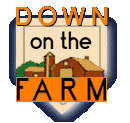|
|
|
|
 |
| ||
|
Scores Schedules Standings Statistics Transactions Injuries Players Offseason moves Message Board Minor Leagues MLB en espaņol Clubhouses | ||
|
SportsMall
| ||
| Sport Sections | ||
|
| ||
| Monday, April 2 | ||||||||||||||||||||||||||||||||||||||||||||||||||||||||||
| Juan Cruz Special to ESPN.com | ||||||||||||||||||||||||||||||||||||||||||||||||||||||||||
| REPORT FILED: OCTOBER 28
Greetings from cloudy, rainy Arizona. I was planning on giving you a report on a Friday afternoon Arizona Fall League game, but alas, Mother Nature has played a cruel joke and decided to deluge the desert with rain. Ah, well. Let's do a regular prospect report instead.
Juan Cruz Chicago Cubs Position: RHP Height: 6-2 Weight: 160 Born: 10/15/80
Mike B. writes: Ty Wigginton has put up some pretty good numbers, last year in Binghamton and now in the AFL. Yet I've never heard him listed as a top prospect in the Mets' organization. Is he legit and does he have a future in the big leagues? Wigginton has legitimate power, having slugged 20 homers this year in Double-A and hitting .285. I have two major concerns for him. Firstly, he is not a good defensive player, being adequate at best at second base. Secondly, his strike zone judgment is poor. He walked just 24 times while fanning 107, which is not a ratio that translates well to the major leagues. The Mets seem to project Wigginton has a super-utility type. He could play left field, third, second, and first in their ideal world, with enough bat to pinch-hit, platoon, and cover for anyone injured at those positions. It's a good plan, if he learns to take more pitches. He drew 56 walks in 1999, so he should be able to get some of the patience back if he works at it. Expect to see Wigginton in Triple-A next year, working on his glove versatility and his command of the zone. Andrew writes: I am a big fan of your column and a big fan of the White Sox. What does Aaron Rowand's 2000 season mean for future development? I know it was below expectations, but not absolutely horrible. Your assessment is fair. Rowand didn't hit as well as the White Sox expect or want, but he did manage to slug 20 homers and steal 22 bases. On the other hand, he hit just .258 and drew just 38 walks, while fanning 117 times. Scouts like to compare Rowand to a young Tim Salmon, and he does have strong raw power. But he has to improve his approach at the plate for it to fully manifest itself. Rowand could probably hit 20 homers in the majors right now, but his batting average and on-base percentage would be prohibitively low. Expect him to be in Triple-A next year. He'll have to improve his plate discipline to avoid getting stuck as a high minor league slugger in the Adam Hyzdu mold. John Sickels is the author of the STATS 2000 Minor League Scouting Notebook. You can email your questions to him at JASickels@AOL.com. | ALSO SEE Down on the Farm 2000 archive  | |||||||||||||||||||||||||||||||||||||||||||||||||||||||||
